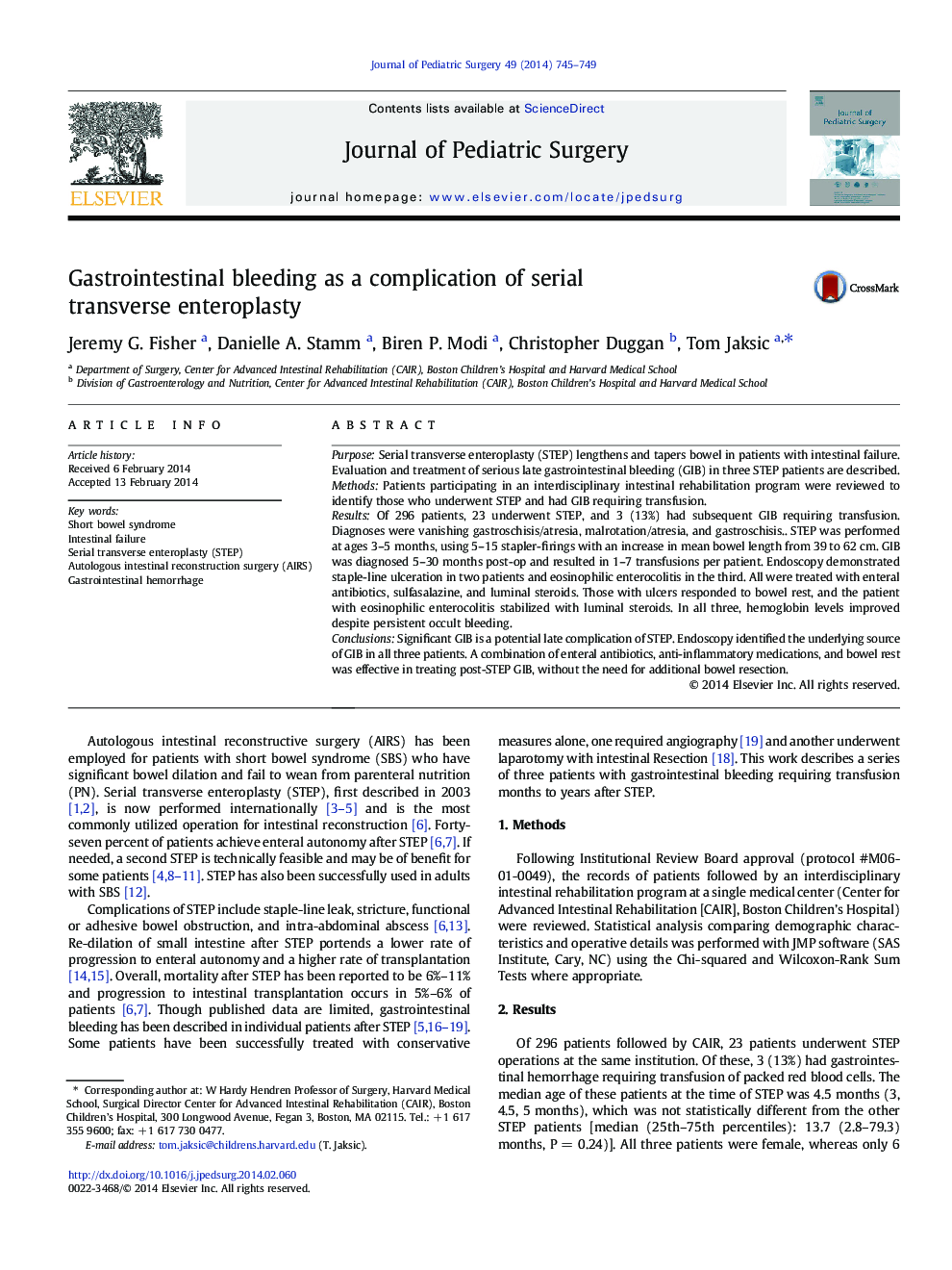| کد مقاله | کد نشریه | سال انتشار | مقاله انگلیسی | نسخه تمام متن |
|---|---|---|---|---|
| 4155731 | 1273754 | 2014 | 5 صفحه PDF | دانلود رایگان |
PurposeSerial transverse enteroplasty (STEP) lengthens and tapers bowel in patients with intestinal failure. Evaluation and treatment of serious late gastrointestinal bleeding (GIB) in three STEP patients are described.MethodsPatients participating in an interdisciplinary intestinal rehabilitation program were reviewed to identify those who underwent STEP and had GIB requiring transfusion.ResultsOf 296 patients, 23 underwent STEP, and 3 (13%) had subsequent GIB requiring transfusion. Diagnoses were vanishing gastroschisis/atresia, malrotation/atresia, and gastroschisis.. STEP was performed at ages 3–5 months, using 5–15 stapler-firings with an increase in mean bowel length from 39 to 62 cm. GIB was diagnosed 5–30 months post-op and resulted in 1–7 transfusions per patient. Endoscopy demonstrated staple-line ulceration in two patients and eosinophilic enterocolitis in the third. All were treated with enteral antibiotics, sulfasalazine, and luminal steroids. Those with ulcers responded to bowel rest, and the patient with eosinophilic enterocolitis stabilized with luminal steroids. In all three, hemoglobin levels improved despite persistent occult bleeding.ConclusionsSignificant GIB is a potential late complication of STEP. Endoscopy identified the underlying source of GIB in all three patients. A combination of enteral antibiotics, anti-inflammatory medications, and bowel rest was effective in treating post-STEP GIB, without the need for additional bowel resection.
Journal: Journal of Pediatric Surgery - Volume 49, Issue 5, May 2014, Pages 745–749
